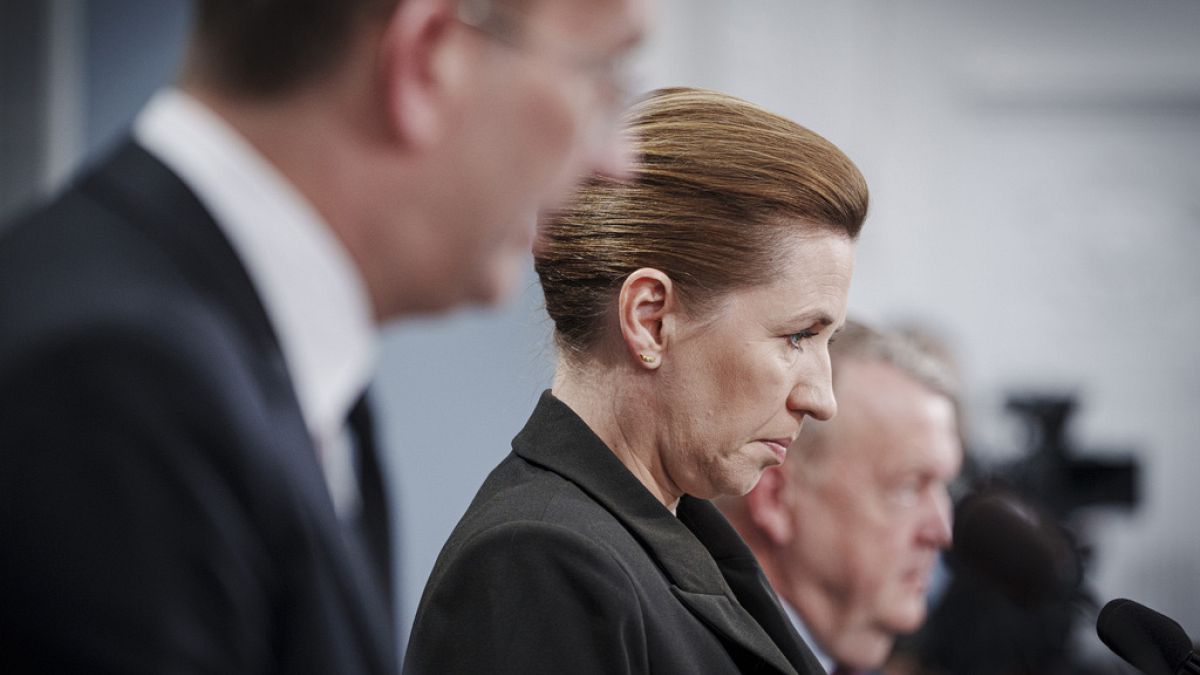The streets of Europe are becoming increasingly hostile towards politicians as a wave of attacks have been reported across the continent. Danish Prime Minister Mette Frederiksen recently suffered minor whiplash after being assaulted in central Copenhagen. The incident was not believed to be politically motivated, but it has raised concerns about the safety of political leaders. Frederiksen revealed that she had been receiving threats on social media for a long time, which escalated after the conflict in the Middle East. The attack on Frederiksen has drawn criticism from both domestic and international leaders, with many calling it unacceptable.
The assault on Frederiksen is part of a larger trend of violence directed towards politicians in Europe. In Slovakia, Prime Minister Robert Fico survived an assassination attempt last month, facing a long recovery ahead. In Germany, attacks on Green politicians have increased significantly over the past 10 years, with members of various political parties facing threats and violence during campaign trails. A recent knife attack on a local council candidate for the AfD party in Mannheim highlights the growing concern over the safety of politicians in the country. Social Democrat politician Lars Klingbeil emphasized that violence against politicians is a social problem that needs to be addressed.
The escalating violence against politicians in Europe has sparked outrage and concern among leaders and citizens alike. The attack on Frederiksen has raised questions about the safety measures in place for political leaders and the need for increased security. Danish police have arrested a 39-year-old Polish man in connection with the assault on Frederiksen and have taken him into pre-trial custody. The incident has prompted discussions about the impact of threats and violence on politicians and the implications for democracy in Europe.
The assault on Frederiksen serves as a reminder of the dangers that politicians face in today’s society. Threats and violence towards political leaders have become increasingly common, leading to a climate of fear and intimidation. The attack on Frederiksen has prompted a reflection on the state of democracy in Europe and the need to protect those who serve in public office. It is essential for governments to take action to ensure the safety of politicians and prevent further acts of violence in the future.
The assault on Danish Prime Minister Mette Frederiksen highlights the challenges and risks that come with serving in public office. As political leaders face increasing threats and attacks, there is a growing need for stronger security measures and support systems to protect them. The incident has sparked a debate on the safety of politicians in Europe and the steps that need to be taken to ensure their well-being. It is crucial for governments and law enforcement agencies to address the growing violence against politicians and work towards creating a safer environment for those who serve their countries.
The attack on Frederiksen and the wave of violence directed towards politicians across Europe are troubling signs of the times we live in. As threats and attacks against political leaders become more prevalent, it is crucial for governments and societies to come together to address these challenges. The safety of politicians should be a top priority, and measures must be taken to prevent further incidents of violence. The assault on Frederiksen serves as a wake-up call for Europe to reevaluate the security of its leaders and take action to ensure their protection in an increasingly volatile political climate.











